Foundations of Mathematics: An Interactive Online Course
This comprehensive online mathematics course is designed to build a strong foundation in key mathematical concepts, including algebra, geometry, trigonometry, and basic statistics. Through a blend of video tutorials, interactive exercises, quizzes, and real-world applications, learners will develop problem-solving skills and numerical literacy essential for academic success and everyday life. The course offers self-paced modules, regular assessments, and live support from experienced instructors, making it ideal for high school students, college entrants, or adult learners seeking to refresh their math skills.
Overview
This unit standard will be useful to people who aim to achieve recognition at some level in Further Education and Training or to meet the Fundamental requirement of a wide range of qualifications registered on the National Qualifications Framework. People credited with this unit standard can use mathematics to plan and control personal and household budgets, income, and expenditures. Use simple and compound interest to make sense of and define various situations, including investments, stokvels, inflation, appreciation and depreciation. Investigate various aspects of financial transactions, including costs, prices, revenue, cost price, selling price, loss and profit.
Description
This unit standard is essential for individuals seeking recognition in Further Education and Training or aiming to fulfill the fundamental requirements of numerous qualifications registered on the National Qualifications Framework. Participants credited with this unit standard will gain proficiency in using mathematics to plan and manage personal and household budgets, incomes, and expenditures. The course will cover the application of simple and compound interest to various scenarios, including investments, stokvels, inflation, appreciation, and depreciation. Additionally, learners will investigate different aspects of financial transactions, encompassing costs, prices, revenue, cost price, selling price, loss, and profit.
Course Content
Unit 1: Use mathematics to plan and control financial instruments
- Plans are sufficient to ensure effective control of financial instruments
- Calculations are carried out using computational tools efficiently and correctly and solutions obtained are verified in terms of the context
- Measures used for control purposes are appropriate to the need and are in line with control plans
Unit 2: Use simple and compound interest to make sense of and define a variety of situations
- The differences between simple and compound interest are described in terms of their common applications and effects
- Methods of calculation are appropriate to the problem types
- Computational tools are used efficiently and correctly and solutions obtained are verified in terms of the context or problem
- Solutions to calculations are used effectively to define the changes over a period of time
Unit 3: Investigate various aspects of costs and revenue
- Values are calculated correctly
- Mathematical tools and systems are used effectively to determine and describe the relationships between the various aspects of costs and revenue
- Terminology is used in the correct context
- Reasonable methods are described for the control of costs and optimisation of profits in relation to given data
Unit 4: Use mathematics to debate aspects of the national and global economy
- Values are calculated correctly
- Mathematical tools and systems are used effectively to determine, compare and describe aspects of the national and global economy
- Debating points are based on well-reasoned arguments and are supported by mathematical information
Accreditation
- Non-accredited: Short course only
- Duration: 1h 30m
- Delivery: Classroom/Online/Blended
- Access Period: 12 Months


